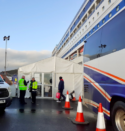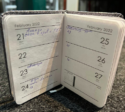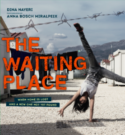Rather than speaking for refugees, we are keen to amplify their voices and offer forced migrants a platform for telling their own stories. The posts below feature a range of people with lived experience of different kinds of displacement. Whether from Afghanistan or Ukraine, from Syria or Bosnia or Iran, they have all had to leave behind much-loved homes, family and friends and build new lives in unfamiliar places. While their stories have some things in common, their experiences of displacement have all varied greatly – and we can learn a lot from those differences. As one of our contributors notes, there is a tendency to flatten different refugee experiences into one all-embracing narrative that stereotypes and dehumanises forced migrants as ‘other’, or ‘them-not-us’. By giving space to a range of different stories of migration, we hope to foreground the humans at the heart of each moment history, and also to deepen understanding of the very wide range of journeys that forced migrants undertake.
‘History has shown that it doesn’t start with concentration camps or mass murder, or civil war or genocide. It always starts with words: stereotypes, cliches, tropes. The fight against dehumanisation, therefore, also needs to start with words. Stories. It is easier to make sweeping generalisations about others if we know close to nothing about them; if they remain an abstraction. To move forward, we need to reverse the process: start by rehumanising those who have been dehumanised. And for that we need the art of storytelling.
Data and factual information are crucial, but not enough to bring down the walls of numbness and indifference, to help us empathise with people outside our tribes. We need emotional connections. But more than that, just as we need sisterhood against patriarchy, we need storyhood against bigotry. East or west, when we relate to others we do so through stories. Literature can be incredibly powerful, universally relevant and, most importantly, a healing force… The art of storytelling is one of our last remaining democratic spaces. Now it must become one of our main acts of resistance against dehumanisation.’
Elif Shafak, ‘We need to tell different stories, to humanise the other’, cited by Lina Fadel in this podcast.
The posts below are offered as a sample – not as an exhaustive or globally representative survey – of different refugee experiences. Our project is based in Scotland, and we have spoken particularly to New Scots and refugees who have made other parts of UK their home. But of course, only a fraction of forced migrants globally ever reach the UK; as UNHCR data shows, around 60% of forced migrants are internally displaced, remaining within their own country, and the vast majority of those who leave their country of origin remain displaced within the same region. In featuring several stories that have their endpoints in the UK we do not want to give the impression that this is somehow the norm; nor do we want to create mental maps of migration flows that distort reality, by misleadingly suggesting that the dominant traffic routinely goes from east to west. (Data visualisations like this and these help us grasp the multiplicity of directions and destinations in recent decades.) One of our goals, however, is to address gaps in understanding, to dispel myths and to counter hostile rhetoric about refugees and migrants that have been gaining traction in the UK. In other words, aspects of our project are aimed primarily at a UK-based audience; but we remain conscious of the need to look far beyond the UK and Europe in visualising forced migration in its global complexity.
As our project develops, we will continue to add more modern stories of migration; and we invite contributions from all around the world. Please get in touch if you would like to share a story of your own. Even as we continue to add new narratives to our site, we encourage you to seek out other refugee stories curated by other advocacy groups and projects. We have made some suggestions here in this resource list.








